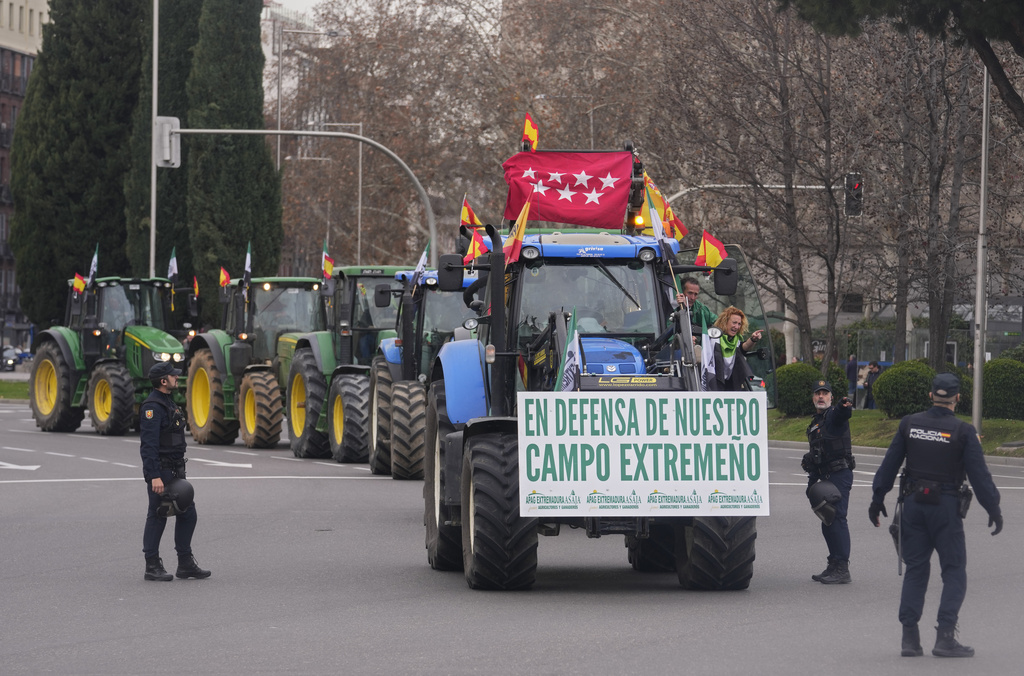For 11 days in a row, Spanish farmers have blocked highways and ports, dumping cheaply imported Moroccan vegetables and cereals on the roads and marching with tractors into the centers of large cities.
Farmers took over Santander on the weekend, while this Wednesday, farmers plan to hold tractor marches and protests in Andalusia, Extremadura, and Castilla and León, with media reports warning of additional road closures and blockaded roads in these regions.
There are no signs the protests are coming to an end, either.
The Union of Small Farmers and Ranchers has an extensive calendar of tractor demonstrations scheduled, all the way until the final one set for Feb. 27 in Córdoba. Meanwhile, the Union of Farmers and Livestock Unions has announced its next demonstration to be on Feb. 21 in Madrid, with several demonstrations planned in the run-up to this.
The growing transport chaos and supply chain disruptions have led Minister of Agriculture Luis Planas to call a meeting of several trade unions on Thursday to try to find a solution to the sector’s problems.
Spanish farmer protests have hit nearly every corner of the country
Last week, on Wednesday, Spanish protesters paralyzed traffic for hours at the port of Motril in southern Spain, where a large part of Morocco’s fruit and vegetable shipments arrive. Several of the vans stuck inside had their holds opened and tomatoes found inside were thrown onto the road in protest at cheap imports of agricultural products from Morocco, which do not meet EU standards.
Meanwhile, scores of farmers with tractors and human chains have blocked the busiest highways in Spain, and have also made crossing the Spanish-French border at La Jonquera difficult for more than two days.
On the A1 near Burgos, police used force to break up the demonstration, beating desperate farmworkers with truncheons.
In southern Spain, the first stage of the Vuelta Andalucia cycling race had to be canceled due to a mobilization because there were not enough gendarmes to ensure the passage of riders.
In Guadalajara, neighboring Madrid, protesting farmers spilled grain on the road, while in Salamanca and other cities, cheaply imported products from third countries bought in the shops of one of the largest hypermarket chains were spilled in the car parks, according to Hungarian news outlet Magyar Nemzet.
On top of calling for reduced regulations and less complicated bureaucracy surrounding EU agricultural policy, Spanish farmers are demanding that the socialist government help them to cope with the damage caused by the drought and ensure greater respect for Spanish agricultural products through fair prices, less red tape, and a level playing field, among other things.
The farmers’ mass protest, planned for Madrid on Feb. 21, is expected to cause major disruptions in the city. There are also fears that clashes with police could ensue. Farmers also announced on Thursday morning of last week that they would mobilize on Feb. 26, the day EU agriculture ministers meet in Brussels.
Prime Minister Pedro Sánchez has so far announced that the law on the food supply chain will be strengthened to ban loss-making sales and promote the sector’s needs; however, farmers remain skeptical of his proposals and plan to keep up the pressure.






